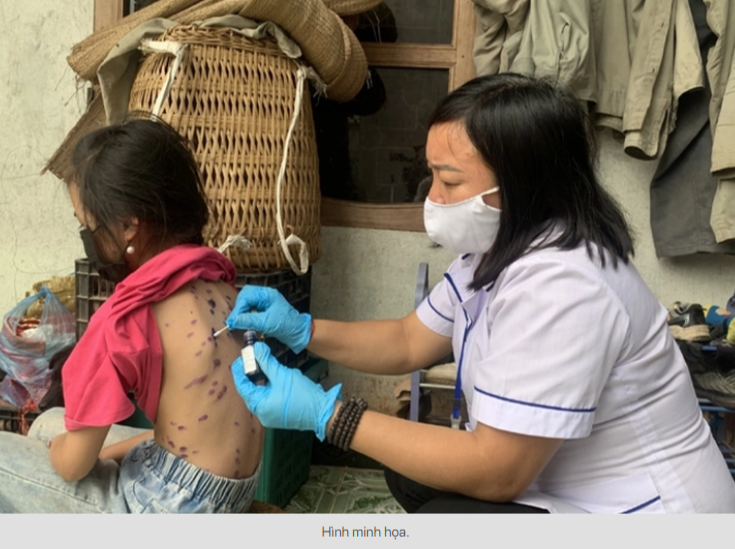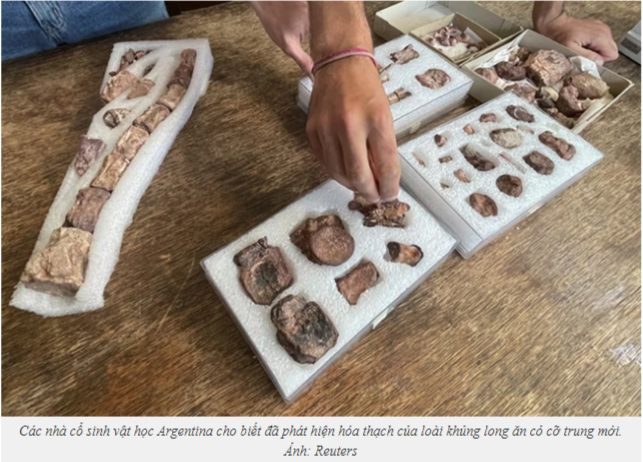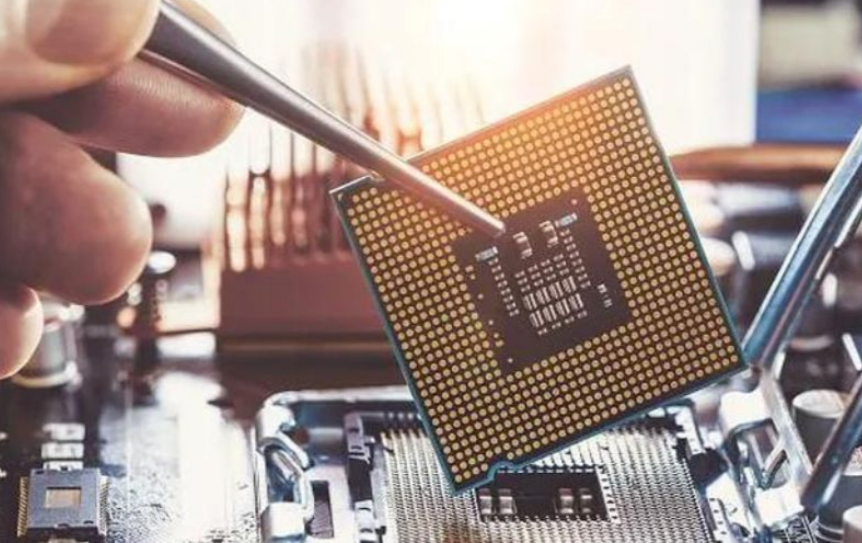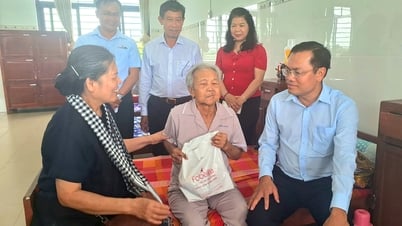For more news, please follow: Infectious diseases tend to increase, the Ministry of Health recommends localities to prevent and control epidemics during the holidays ; the Ministry of Science and Technology prioritizes funding for semiconductor chip research topics ; 76-year-old runner sets world record at London Marathon; Fossils of herbivorous dinosaurs discovered 90 million years ago.
From 1-7, money transfers over 10 million must be biometrically authenticated
According to the State Bank's regulations, from July 1, 100% of money transfer transactions with a value of over 10 million via banking applications will be required to perform biometric authentication.
Amid increasingly sophisticated fraud, some banks have begun implementing biometric authentication for money transfers, even before the new regulations come into effect, to increase customer security.
According to data from the State Bank, in the first two months of this year, non-cash payment activities increased by nearly 60% in quantity and nearly 33% compared to the same period last year. Along with that, customers also face more risks when making non-cash payments. There have been many cases of criminals taking advantage of customers' trust and impersonating their information to gain access to their accounts.
MBBank said it has added a security step, requiring biometric authentication for 25 million customers using its mobile banking app. A bank representative said that facial authentication does not take time but ensures that the person conducting the transaction is the owner of the bank account.
In addition to the requirement for biometric authentication when making transfers of over VND10 million, the State Bank also requires banks to store information about customers' online transaction devices and transaction authentication logs for at least 3 months. These regulations are also expected to ensure the common interests of the community and protect the safety of people's deposits in the banking system.
Infectious diseases tend to increase, Ministry of Health recommends localities to prevent and control epidemics during holidays

The Ministry of Health has just sent a document to the People's Committees of provinces and centrally run cities on proactively implementing disease prevention and control activities.
In particular, for rabies: Ensure sufficient and increase people's access to rabies vaccines and anti-rabies serum, especially in high-risk areas, arrange at least 1 vaccination point in each district, in large areas and difficult terrain, consider arranging additional vaccination points; strengthen coordination with the agricultural sector to closely monitor cases of suspected rabid dog and cat bites, provide vaccination instructions and promptly handle outbreaks.
Dengue fever: Strongly implement the communication campaign to prevent dengue fever and activities in response to the 14th ASEAN Dengue Day (June 15, 2024). Organize environmental sanitation campaigns, mosquito larvae eradication to prevent dengue fever.
Hand, foot and mouth disease: Closely monitor the epidemic situation, detect early and promptly handle new outbreaks, take samples for testing to identify the causative agent. Closely coordinate with the Department of Education and Training to guide educational institutions, especially kindergartens, preschools, and nurseries, on disease prevention and control measures, closely monitor students' health, promptly detect cases with signs of suspected disease and notify medical facilities for timely coordination and handling.
Diseases prevented by vaccines (measles, whooping cough, diphtheria...): Promote the implementation of the 2024 vaccination plan, carry out regular vaccination for subjects under the Expanded Immunization Program; organize catch-up vaccinations and catch-up vaccinations for cases that have not been fully vaccinated...
Ministry of Science and Technology prioritizes funding for semiconductor chip research topics
Regarding human resource training for the semiconductor chip industry, Deputy Minister of Science and Technology Nguyen Hong Thai informed: The Ministry is not allowed to provide training funding, for example, it is not allowed to provide scholarships. However, the Ministry of Science and Technology will also consider taking responsibility for this issue, for example, it can support through research topics.
“The Ministry of Science and Technology will guide national and ministerial-level topics on semiconductor microchips. This is a direction for universities to create conditions for masters and doctoral students to receive research support and participate in research,” Deputy Minister Nguyen Hong Thai affirmed.
Another solution, to contribute to promoting the training of high-quality human resources, is to allocate funds to send cadres abroad to study. The National Foundation for Science and Technology Development (NAFOSTED) currently has a policy of prioritizing sending young cadres to do research abroad.
“Recently, the leaders of the Ministry of Science and Technology have asked the fund's executive board to identify five priority areas each year. From now on, in addition to areas such as medicine, genetics, etc., semiconductor microchips will be prioritized. This is what has been lacking in recent years,” Deputy Minister Nguyen Hong Thai acknowledged.
76-year-old runner sets world record at London Marathon
Korean-American runner Jeannie Rice completed the 2024 London Marathon in 3 hours 33 minutes 27 seconds, setting a world record in the 75-79 age group for a distance of 42.195 km .
Having averaged a 5:03 pace (5 minutes and 3 seconds per kilometer) on the London course on April 21, Rice finished in 3 hours, 33 minutes and 27 seconds, beating her previous record set in Chicago in October 2023 by more than a minute. Her latest achievement is pending World Masters Athletics (WMA) approval.
Rice finished first in the women's age group at the 2024 London Marathon, beating the runner-up by 30 minutes. She even beat the men's age group by 11 minutes.
Rice started running at age 35, initially to lose weight. "Running became a part of my life. People would wake up and go to work, kids would wake up and go to school, and I would wake up and run," she said, revealing that she would write down world records for her age group on pieces of paper, stick them on her fridge, and pursue them.
Fossils of herbivorous dinosaurs discovered 90 million years ago

Argentine paleontologists say they have discovered the fossil of a new species of medium-sized herbivorous dinosaur that was capable of running fast and lived about 90 million years ago in the Cretaceous period and what is now the Patagonian region of Argentina and Chile.
According to research results, this dinosaur is called Chakisaurus nekul with the largest one estimated to be 2.5-3 meters long and 70 cm tall.
Scientists discovered the fossils in the Pueblo Blanco Nature Reserve in the Río Negro province of southern Argentina, an area rich in fossils of mammals, turtles and fish, along with other dinosaurs. According to paleontologists, the new discovery shows that this dinosaur was capable of running fast and had a curved tail.
The study's author Rodrigo Álvarez said the new dinosaur was a bipedal herbivore, with the most important feature being its tail, which was curved downward, unlike other dinosaurs whose tails were horizontal.
Experts say this is a very new discovery for this animal species. In addition, Chakisaurus nekul also runs very fast, a characteristic that this animal needs to be able to defend itself and survive among predators.
Chakisaurus nekul had very strong hind limbs and a tail that could move side to side and thus maintain balance during chases, added study co-author Sebastián Rozadilla.
Bao Nam synthesis
Source



































































































Comment (0)